This is how hardline No voters reacted to Australia voting Yes to same-sex marriage
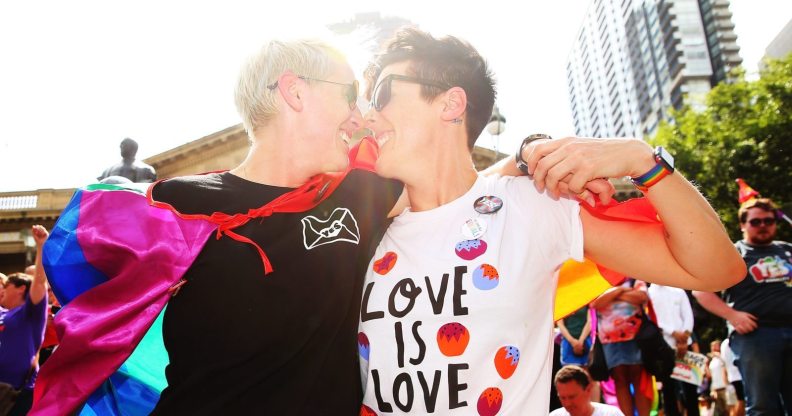
(Getty)
Australia has voted Yes to same-sex marriage in a historic nationwide poll.
Almost 13 million Australians voted in the country’s postal survey, with 61.6% of eligible participants voting Yes.
Australia now looks likely to become the 25th country in the world to introduce marriage for same-sex couples.
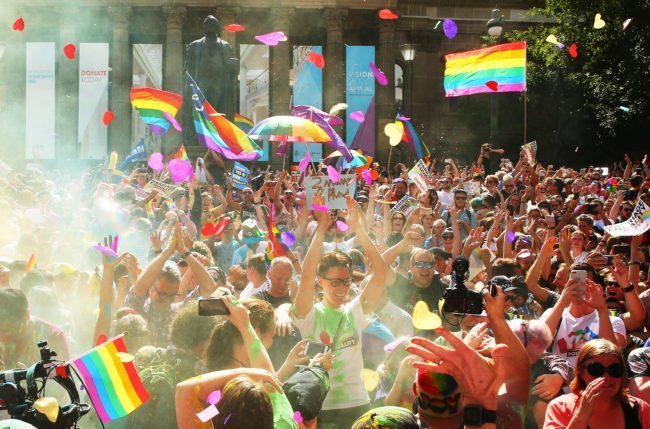
The No camp said a result of over 40% would be “respectable” – a figure they ultimately missed out on.
Leaders of the No campaign have reacted to the news with mixed feelings.
Kevin Andrews, a hardline No campaigner and backbench politician, appeared on Sky News Australia to declare that Jewish bakers should now be allowed to discriminate against Islamic customers in a bizarre rant.
. @kevinandrewsmp : A Jewish baker should be able to deny an Islamic customer a wedding cake and vice versa. MORE: https://t.co/wX3tAbXkD4 pic.twitter.com/5lIekTmeRS
— Sky News Australia (@SkyNewsAust) November 15, 2017
“I don’t have a problem if there’s a gay baker who says they don’t want to bake a cake for a heterosexual wedding, or for a Christian or an Islamic celebration or whatever it might be,” said Andrews.
“So a Jewish baker should be able to deny an Islamic…?” asked Sky News host David Speers.
“Why not?” Andrews responded.
“It has to be in relation to marriage. We’re not talking about someone comes in and says ‘David Speers I want to buy a cake’ — well of course there shouldn’t be objection to that, but this goes to fundamental religious beliefs and beliefs of conscience, and it’s only in relation to that.”
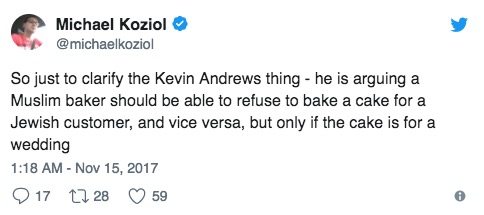
No voter and former Prime Minister Tony Abbott said “parliament should respect the result”.
But he added: “I also thank the 4.7 million Australians who supported marriage between a man and a woman.”
He also suggested he wanted the proposed bill amending: “I look forward to a parliamentary process that improves on the Dean Smith bill to implement same sex marriage with freedom of conscience for all, not just the churches.”
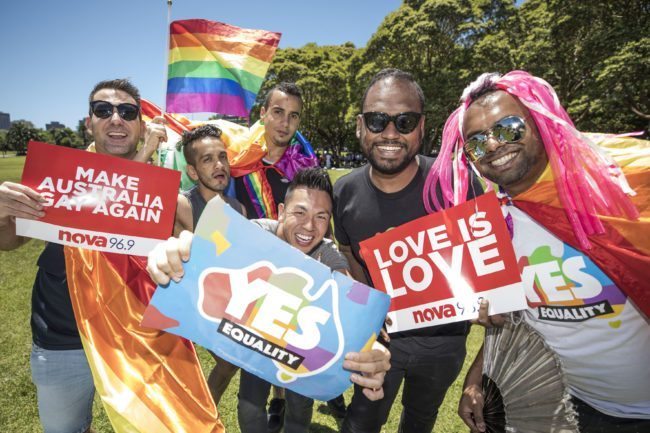
Meanwhile Australian Conservatives leader Cory Bernardi claimed: “A great many more Australians have concerns about the consequences for our cherished freedoms, such as freedom of speech, freedom of religion and freedom of conscience.”
He later posted a video to YouTube claiming same-sex marriage damaged the “structures which have built Western civilisation”.
The public vote is not legally binding, so both houses still need to pass legislation for it to become legal.
Monday is the first day that a same-sex marriage bill can be tabled in the House of Representatives, which is not sitting this week.
A bill must pass in both houses before it can be signed into law by the Governor-General.
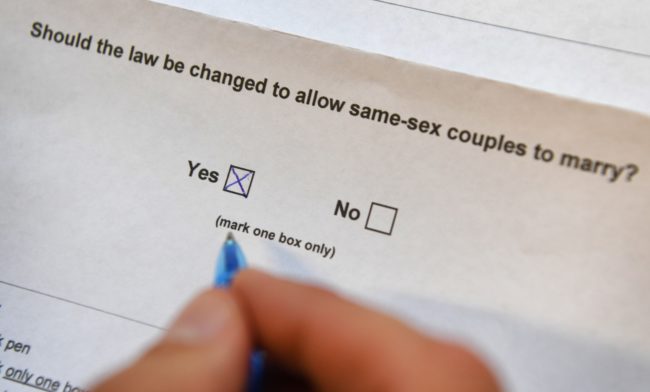
Hardline anti-LGBT MPs within the governing Liberal-National Coalition have said they will not be conceding.
Two bills will be proposed to parliament – one by a coalition of same-sex marriage supporters proposing simply to introduce the other measure, and another by a right-wing Senator proposing same-sex marriage, but with various “religious freedoms”.
Liberal James Paterson has said he will introduce the caveated bill that would override any anti-discrimination laws passed by state and territory level legislatures.
However former PM Abbott endorsing the original Dean Smith bill makes the chances of this progressing slimmer.
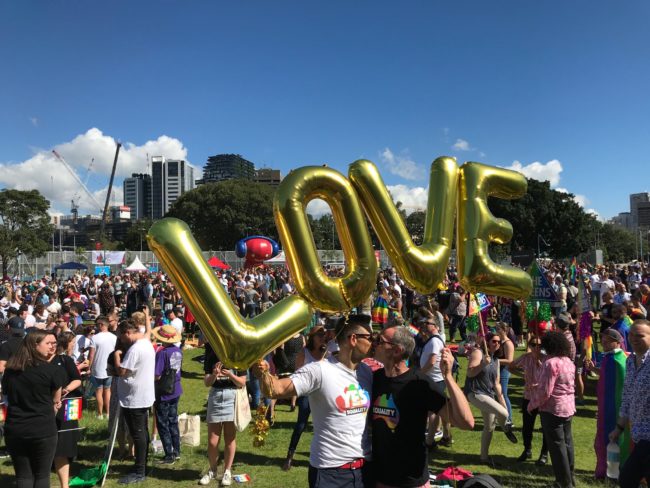
Sydney @mmcgowan569 on Twitter
The bill would permit anyone who holds a religious or “conscientious belief” in traditional marriage to refuse same-sex weddings, allowing discrimination by private service providers.
The proposal comes after a bombshell poll found half of Australians support service providers being allowed to refuse same-sex weddings on the basis of private religious views.
Hardliners may also table a string of amendments if their desired bill doesn’t go through, in a bid to seriously change or slow the introduction.

